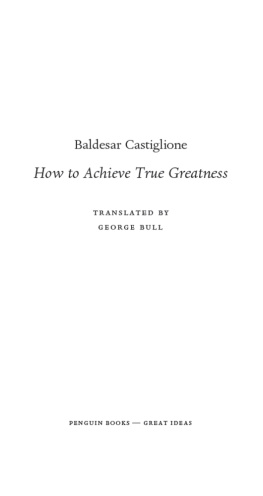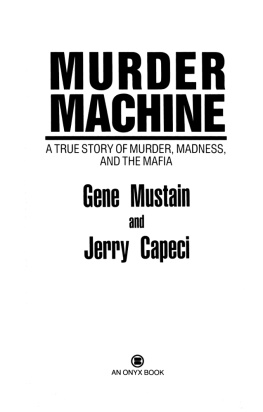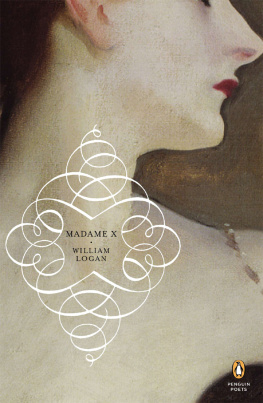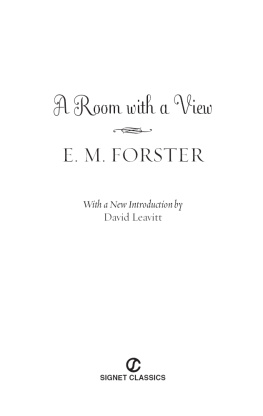Castiglione - How to Achieve True Greatness
Here you can read online Castiglione - How to Achieve True Greatness full text of the book (entire story) in english for free. Download pdf and epub, get meaning, cover and reviews about this ebook. City: New York, year: 2014;2006, publisher: Penguin Publishing Group, genre: Romance novel. Description of the work, (preface) as well as reviews are available. Best literature library LitArk.com created for fans of good reading and offers a wide selection of genres:
Romance novel
Science fiction
Adventure
Detective
Science
History
Home and family
Prose
Art
Politics
Computer
Non-fiction
Religion
Business
Children
Humor
Choose a favorite category and find really read worthwhile books. Enjoy immersion in the world of imagination, feel the emotions of the characters or learn something new for yourself, make an fascinating discovery.
- Book:How to Achieve True Greatness
- Author:
- Publisher:Penguin Publishing Group
- Genre:
- Year:2014;2006
- City:New York
- Rating:4 / 5
- Favourites:Add to favourites
- Your mark:
- 80
- 1
- 2
- 3
- 4
- 5
How to Achieve True Greatness: summary, description and annotation
We offer to read an annotation, description, summary or preface (depends on what the author of the book "How to Achieve True Greatness" wrote himself). If you haven't found the necessary information about the book — write in the comments, we will try to find it.
How to Achieve True Greatness — read online for free the complete book (whole text) full work
Below is the text of the book, divided by pages. System saving the place of the last page read, allows you to conveniently read the book "How to Achieve True Greatness" online for free, without having to search again every time where you left off. Put a bookmark, and you can go to the page where you finished reading at any time.
Font size:
Interval:
Bookmark:

PENGUIN BOOKS GREAT IDEAS
How to Achieve True Greatness
Baldesar Castiglione
14781529
TRANSLATED BY
GEORGE BULL
PENGUIN BOOKS GREAT IDEAS
PENGUIN BOOKS
Published by the Penguin Group
Penguin Group (USA) Inc., 375 Hudson Street, New York, New York 10014, U.S.A.
Penguin Group (Canada), 90 Eglinton Avenue East, Suite 700, Toronto,
Ontario, Canada M4P 2Y3 (a division of Pearson Penguin Canada Inc.)
Penguin Books Ltd, 80 Strand, London WC2R 0RL, England
Penguin Ireland, 25 St Stephen's Green, Dublin 2, Ireland (a division of Penguin Books Ltd)
Penguin Group (Australia), 250 Camberwell Road, Camberwell,
Victoria 3124, Australia (a division of Pearson Australia Group Pty Ltd)
Penguin Books India Pvt Ltd, 11 Community Centre, Panchsheel Park, New Delhi110 017, India
Penguin Group (NZ), cnr Airborne and Rosedale Roads, Albany,
Auckland 1310, New Zealand (a division of Pearson New Zealand Ltd)
Penguin Books (South Africa) (Pty) Ltd, 24 Sturdee Avenue,
Rosebank, Johannesburg 2196, South Africa
Penguin Books Ltd, Registered Offices:
80 Strand, London WC2R 0RL, England
This edition published in Penguin Books (UK) 2005
Published in Penguin Books (USA) 2006
1 3 5 7 9 10 8 6 4 2
Translation copyright George Bull, 1967
All rights reserved
Reprinted from The Book of the Courtier,
translated and edited by George Bull (Penguin Classics, 1967).
ISBN: 978-1-101-65100-1
CIP data available
Printed in the United States of America
Set in Monotype Dante
Except in the United States of America, this book is sold subject to the condition
that it shall not, by way of trade or otherwise, be lent, resold, hired out, or otherwise
circulated without the publisher's prior consent in any form of binding or cover other
than that in which it is published and without a similar condition including
this condition being imposed on the subsequent purchaser.
The scanning, uploading and distribution of this book via the Internet or via any
other means without the permission of the publisher is illegal and punishable by law.
Please purchase only authorized electronic editions, and do not participate in or encourage
electronic piracy of copyrighted materials. Your support of the author's rights is appreciated.
I have spent a long time wondering, my dear Alfonso, which of two things was the more difficult for me: either to refuse what you have asked me so often and so insistently, or to do it. On the one hand, it seemed to me to be very hard to refuse anything, and especially something praiseworthy, to one whom I love dearly and by whom I feel I am very dearly loved; yet on the other hand, to embark on a project which I was uncertain of being able to finish seemed wrong to one who respects adverse criticism as much as it ought to be respected. Eventually, after a great deal of thought, I have made up my mind to find out how diligent I can be when helped by affection and the anxiety to please, which usually act as a sharp spur to all kinds of activity.
Now your request is that I should describe what, in my view, is the form of courtiership most appropriate for a gentleman living at the Courts of princes, by which he will have the knowledge and the ability to serve them in every reasonable thing, winning their favour and the praise of others. In short, you want to know what kind of man must be one who deserves the name of a perfect courtier and has no shortcomings whatsoever. Considering this request, I must say that, if I did not think it a greater fault to be judged wanting in love by you than wanting in prudence by others, I would have rejected the task, for fear of being accused of rashness by all those who know how difficult an undertaking it is to select from all the many and various customs followed at the Courts of Christendom the most perfect model and, as it were, the very flower of courtiership. For familiarity often causes the same things to be liked and disliked: and thus it sometimes happens that the customs, behaviour, ceremonies and ways of life approved of at one period of time grow to be looked down on, and those which were once looked down on come to be approved. So we can see clearly enough that usage is more effective than reason in introducing new things among us and in wiping out the old. And anyone who tries to judge what is perfect in these matters often deceives himself. Being well aware of this, therefore, and of the many other problems connected with the subject proposed to me, I am compelled to say something by way of excuse and to testify that what I am doing wrong (if it can be called so) you are responsible for as well, and that if I am to be blamed for it you must share the blame. After all, you must be judged to be as much at fault in imposing on me a task greater than my resources as I am in having accepted it.
But let us now begin to discuss the subject we have chosen and, if it is possible, create a courtier so perfect that the prince who is worthy of his service, even though his dominion is small, can count himself a truly great ruler. In these books we shall not follow any strict order or list a series of precepts, as is the normal practice in teaching. Instead, following many writers of the ancient world, and reviving a pleasant memory, we shall recount some discussions which once took place among men who were singularly qualified in these matters. Even though I did not take part in them in person (being in England when they were held), they were faithfully reported to me soon after my return by someone who was present, and I shall endeavour to reproduce them as accurately as my memory allows so that you may discover what was held and thought on the subject by eminent men whose judgement can always be trusted completely. Nor will it be beside the purpose, in order to continue the story in logical order, to describe the occasion of the discussions that took place.
On the slopes of the Apennines, almost in the centre of Italy towards the Adriatic, is situated, as everyone knows, the little city of Urbino. Although it is surrounded by hills which are perhaps not as agreeable as those found in many other places, none the less it has been favoured by Nature with a very rich and fertile countryside, so that as well as a salubrious atmosphere it enjoys an abundance of all the necessities of life. Among the blessings and advantages that can be claimed for it, I believe the greatest is that for a long time now it has been governed by outstanding rulers, even though in the turmoils into which Italy was plunged by war it was for a time deprived of them. Without looking any further, we can find a splendid example in Duke Federico of glorious memory, who in his day was the light of Italy. Nor are there lacking today any number of reliable witnesses to his prudence, humanity, justice, generosity and unconquerable spirit, and to his military skill, which was brilliantly attested by his many victories, his ability to capture impregnable places, his swift and decisive expeditions, his having routed many times with few troops great and formidable armies, and his never having lost a single battle. So we can fairly compare him with many famous men of the ancient world. Among his other commendable enterprises, Duke Federico built on the rugged site of Urbino a palace which many believe to be the most beautiful in all Italy; and he furnished it so well and appropriately that it seemed more like a city than a mere palace. For he adorned it not only with the usual objects, such as silver vases, wall-hangings of the richest cloth of gold, silk and other similar material, but also with countless antique statues of marble and bronze, with rare pictures, and with every kind of musical instrument; nor would he tolerate anything that was not most rare and outstanding. Then, at great cost, he collected a large number of the finest and rarest books, in Greek, Latin and Hebrew, all of which he adorned with gold and silver, believing that they were the crowning glory of his great palace.
Font size:
Interval:
Bookmark:
Similar books «How to Achieve True Greatness»
Look at similar books to How to Achieve True Greatness. We have selected literature similar in name and meaning in the hope of providing readers with more options to find new, interesting, not yet read works.
Discussion, reviews of the book How to Achieve True Greatness and just readers' own opinions. Leave your comments, write what you think about the work, its meaning or the main characters. Specify what exactly you liked and what you didn't like, and why you think so.





![Harry Turtledove - Worlds that werent : [novellas of alternate history]](/uploads/posts/book/79050/thumbs/harry-turtledove-worlds-that-weren-t-novellas.jpg)

